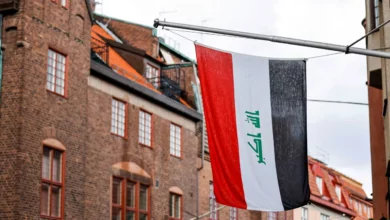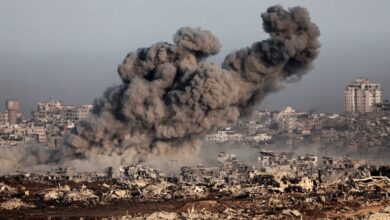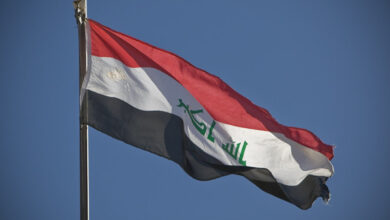
Kurdish forces have bulldozed, blown up and burned down thousands of Arab homes across northern Iraq in what may constitute a war crime, human rights watchdog Amnesty International said in a report published on Wednesday.
Amnesty said it found evidence of a "concerted campaign" by the Kurds to uproot Arab communities in revenge for their perceived support of Islamic State, which seized control of about one third of Iraq in the summer of 2014.
Kurdish peshmerga forces have since driven the insurgents back in the north of Iraq with the help of airstrikes from a US-led coalition, expanding their control to include ethnically mixed territories they claim as their own.
“KRG (Kurdistan Regional Government) forces appear to be spearheading a concerted campaign to forcibly displace Arab communities by destroying entire villages in areas they have recaptured from IS (Islamic State) in northern Iraq," Amnesty’s Senior Crisis Response Advisor, Donatella Rovera, said.
"The forced displacement of civilians and the deliberate destruction of homes and property without military justification, may amount to war crimes."
The report, based on field investigation in 13 villages and towns, and testimony gathered from more than 100 witnesses, also includes satellite imagery showing large-scale destruction of homes in Nineveh, Kirkuk and Diyala provinces.
Arabs who fled their homes have also been barred by Kurdish forces from returning to areas recaptured from Islamic State, Amnesty said.
Dindar Zebari, the head of the KRG's committee to respond to international reports, said the damage documented by Amnesty was a result of fighting between the peshmerga and Islamic State militants, as well as airstrikes and booby-traps left behind by the militants.
As for the forced displacement of Arabs, Zebari said the coalition had requested civilians be kept away from areas close to the front line, and that Kurds too were prevented from returning to some recaptured villages for their own safety.
Zebari noted that the Kurdistan region has accommodated 700,000 Arabs fleeing violence in the rest of the country.
Amnesty urged the coalition to ensure that any assistance provided to the KRG was not fuelling abuses, which it described as an attempt to reverse the Arabisation campaign conducted under former dictator Saddam Hussein when thousands of Kurds were uprooted.
“KRG forces have a duty to bring to justice in fair trials individuals who are suspected of having aided and abetted IS crimes," Rovera said.
"But they must not punish entire communities for crimes perpetrated by some of their members or based on vague, discriminatory and unsubstantiated suspicions that they support IS”.




